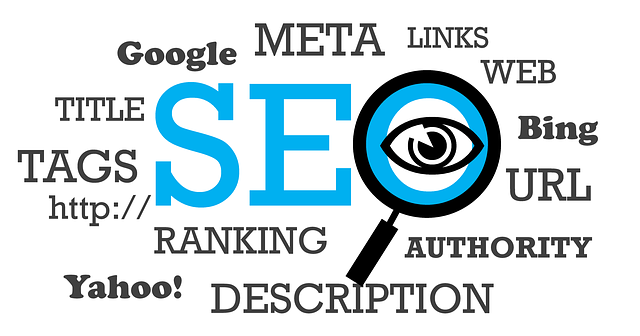Google leads in harnessing machine learning (ML) to revolutionize industries. ML processes vast data, predicts preferences, enhances information retrieval, and powers personalized experiences. In education, it drives tailored learning paths, improves outcomes, and aids conflict resolution. NLP enables global communication, while deep neural networks transform visual data interpretation. Google's tools foster innovation across sectors, from healthcare to autonomous vehicles, impacting accessibility and assessment in education.
Machine learning is revolutionizing industries by transforming the way we work, interact, and forecast. From enhancing decision-making processes with Google’s cutting-edge ML algorithms to automating tasks through efficient data processing, this technology offers immense potential. It personalizes customer experiences, enables predictive analytics for accurate business forecasting, facilitates seamless language translation via natural language processing, and even changes our perception of the world through image and vision technologies. Let’s explore these game-changing applications, with a focus on Google as a leading innovator.
- Enhancing Decision Making: Google's ML Algorithms
- Automating Tasks: Efficient Data Processing
- Personalized Experiences: Customer Engagement
- Predictive Analytics: Business Forecasting
- Natural Language Processing: Language Translation
- Image and Vision: Revolutionizing Perception
Enhancing Decision Making: Google's ML Algorithms

Machine learning algorithms have become a powerful tool for enhancing decision-making processes across various industries. One notable example is Google, which leverages its extensive expertise in ML to revolutionize search engine optimization and provide personalized user experiences. By analyzing vast amounts of data, Google’s algorithms can predict user preferences and deliver tailored results, making information retrieval more efficient. This level of customization not only improves user satisfaction but also contributes to better decision-making for businesses aiming to connect with their target audiences.
In the context of education, this technology can be harnessed for various applications. For instance, data analysis tools powered by ML can assist students in their learning journeys. These tools can identify patterns in student performance, offer personalized study plans, and even predict potential areas of difficulty, thereby improving overall academic outcomes. Furthermore, online learning platforms can benefit from these algorithms to create more effective bullying prevention programs by identifying and addressing issues within digital communities. Google’s commitment to safe school environments creation through innovative technology underscores the potential for ML to transform not just industries but also societal aspects such as education, fostering a more inclusive and supportive digital landscape.
Automating Tasks: Efficient Data Processing

Machine learning is transforming industries by automating tasks and enhancing data processing capabilities. This technology enables businesses to handle vast amounts of data with speed and accuracy, leading to more efficient operations. For instance, in manufacturing, machine learning algorithms can predict equipment failures before they occur, minimizing downtime and reducing maintenance costs. Similarly, in healthcare, these algorithms can analyze patient records and medical images to assist in diagnosis, improving treatment outcomes.
Beyond industry-specific applications, machine learning plays a crucial role in conflict resolution strategies for students, learning strategies, and behavior management plans examples. By leveraging data insights, educational institutions can personalize learning experiences, adapt curriculum to individual needs, and predict potential behavioral issues. Even platforms like find us at language learning apps review benefit from these advancements, offering users tailored recommendations and improved user experiences through sophisticated data analysis.
Personalized Experiences: Customer Engagement

In today’s digital era, machine learning (ML) is revolutionizing the way businesses interact with their customers, creating personalized experiences that were once unimaginable. By leveraging vast amounts of data, ML algorithms can analyze consumer behavior, preferences, and trends to deliver tailored content, recommendations, and offers. This level of customization enhances customer engagement, fosters brand loyalty, and ultimately drives sales. For instance, e-commerce platforms use ML to suggest products based on a user’s past purchases or browsing history, significantly improving the online shopping experience.
Google, as a leader in search technology, employs ML extensively to deliver relevant and personalized search results. This not only improves user satisfaction but also encourages repeat visits to their platform. Moreover, the application of ML extends beyond mere customer engagement; it aids in predictive analytics, enabling businesses to anticipate client needs even before they express them. This proactive approach to service can be particularly beneficial in sectors like education, where behavioral modification strategies, such as those outlined in a comprehensive research paper writing guide, can be enhanced through ML-driven insights into student performance and learning patterns. Visit us at literary analysis examples anytime for more on leveraging technology for personalized learning experiences.
Predictive Analytics: Business Forecasting

Machine learning has revolutionized predictive analytics, allowing businesses to forecast trends and outcomes with unprecedented accuracy. By leveraging algorithms that can analyze vast datasets and historical patterns, companies can now predict customer behavior, market shifts, and even future demand for products and services. This capability is a game-changer in various industries, from retail and finance to healthcare and education. For instance, predictive analytics helps retailers optimize inventory management by forecasting sales, ensuring they meet consumer needs without overstocking or understocking.
In the context of educational institutions, predictive analytics can be leveraged for action research in education processes, identifying areas where interventions can lead to significant improvements. By analyzing student data, such as academic performance and engagement, schools and teachers can tailor their strategies to better support diverse learners. For example, special education resources for teachers can be enhanced using machine learning insights, ensuring that every student receives personalized instruction. Visit us at teachings strategies for diverse learners anytime to explore how these advancements can transform the educational landscape.
Natural Language Processing: Language Translation

Natural Language Processing (NLP) has emerged as a powerful tool within machine learning, enabling computers to understand and interpret human language. One of its most impactful applications is language translation. With NLP, machines can now translate text or speech in real-time, breaking down language barriers and facilitating global communication. This technology has revolutionized the way we interact with online learning platforms comparison, as students from different linguistic backgrounds can access educational resources without language constraints.
For instance, those interested in computer programming for beginners can find tutorials and courses in their native languages, making the learning process more accessible. Moreover, NLP-powered translation services have improved customer support on various digital platforms, providing accurate translations for users worldwide. Even survey research techniques benefit from this technology, allowing researchers to collect and analyze data from diverse populations without language limitations, thus expanding the scope of their studies. Visit us at special education resources for teachers anytime to explore more about how machine learning is transforming education.
Image and Vision: Revolutionizing Perception

Machine learning is reshaping industries by enhancing their ability to interpret and understand visual data, marking a significant leap in how we perceive and interact with our surroundings. Image and vision technologies powered by machine learning algorithms are now capable of recognizing objects, faces, and scenes with astonishing accuracy, thanks to advancements in deep neural networks and convolutional neural networks. This capability has profound implications across various sectors, from healthcare where ML-driven systems assist in disease detection through medical imaging to autonomous vehicles that navigate using sophisticated computer vision.
Google, a pioneer in machine learning research, has developed tools like TensorFlow that enable developers to leverage these capabilities. By visiting us at Educational Psychology Fundamentals, you can explore how these technologies are not only revolutionizing information literacy skills assessment and survey research techniques but also fostering inclusion in classrooms through enhanced accessibility features. This evolution is just the beginning; as machine learning continues to mature, its impact on image and vision-related tasks will undoubtedly deepen, opening new avenues for innovation across industries.
Machine learning is truly a game-changer across various industries, from enhancing decision-making processes at giants like Google, to revolutionizing customer engagement through personalized experiences. It automates tedious tasks, improves data processing efficiency, and enables predictive analytics for accurate business forecasting. Advancements in natural language processing facilitate precise language translation, while image and vision technologies are transforming how we perceive the world. As these capabilities continue to evolve, industries can expect even greater innovation and optimization thanks to machine learning.

Leave a Reply